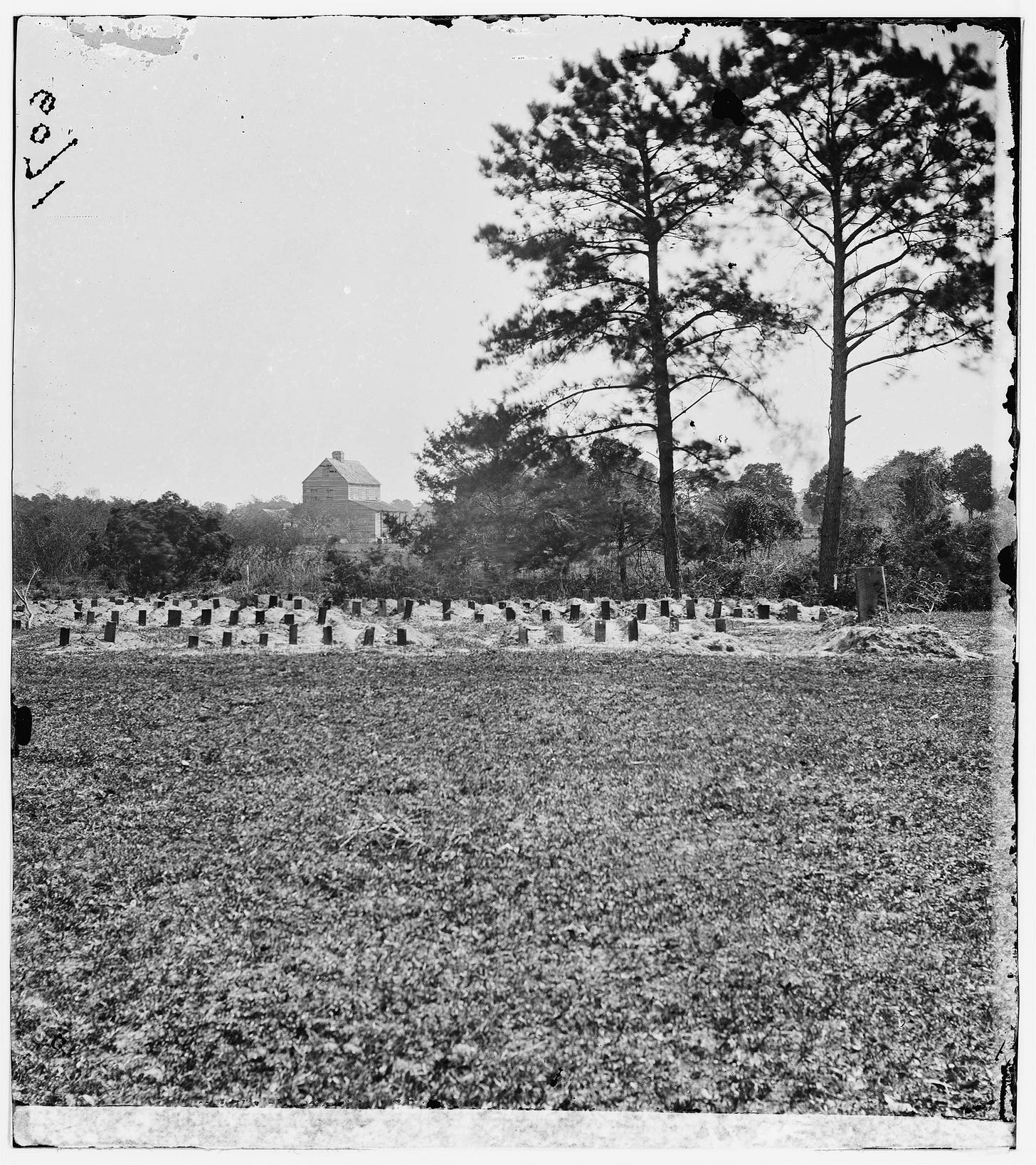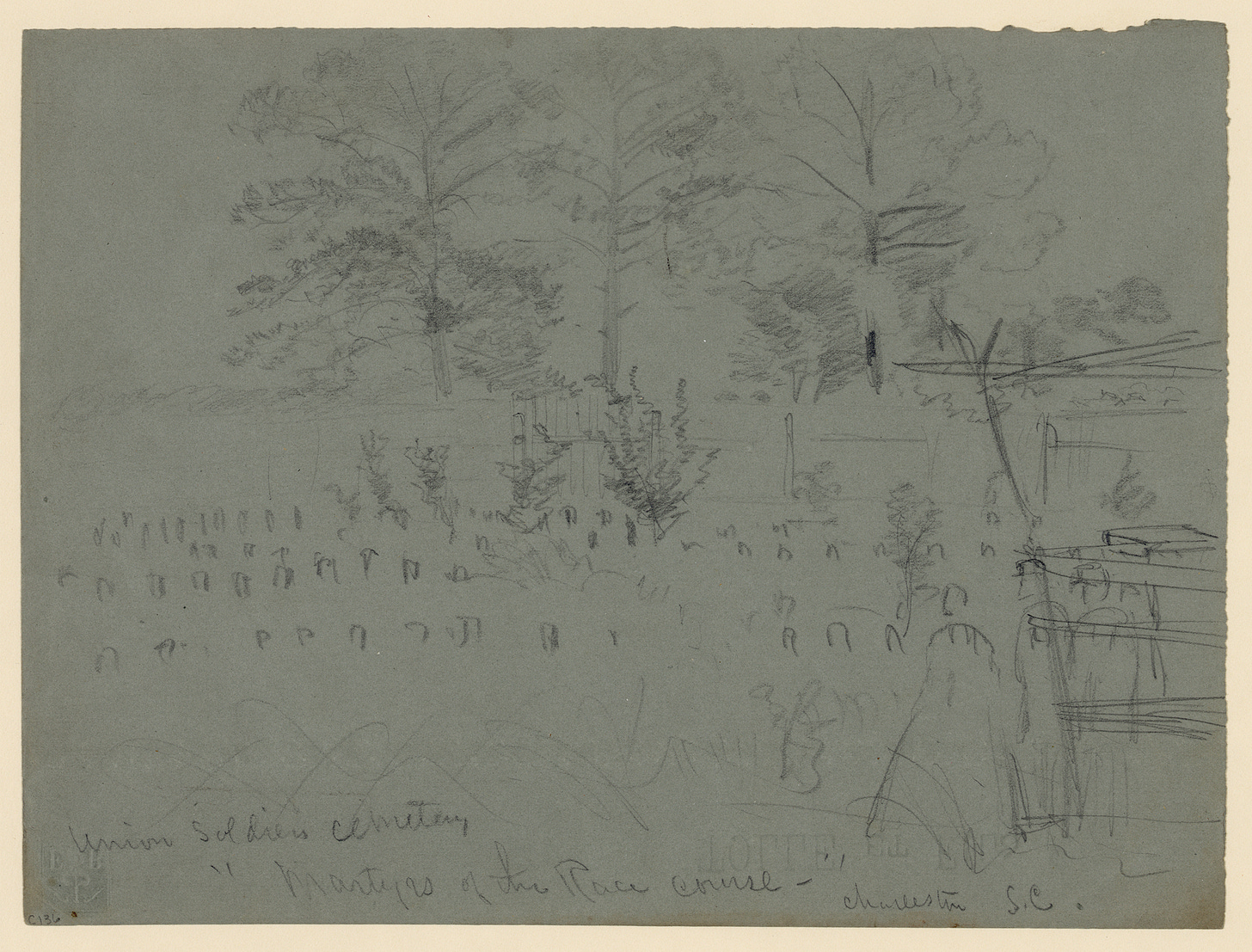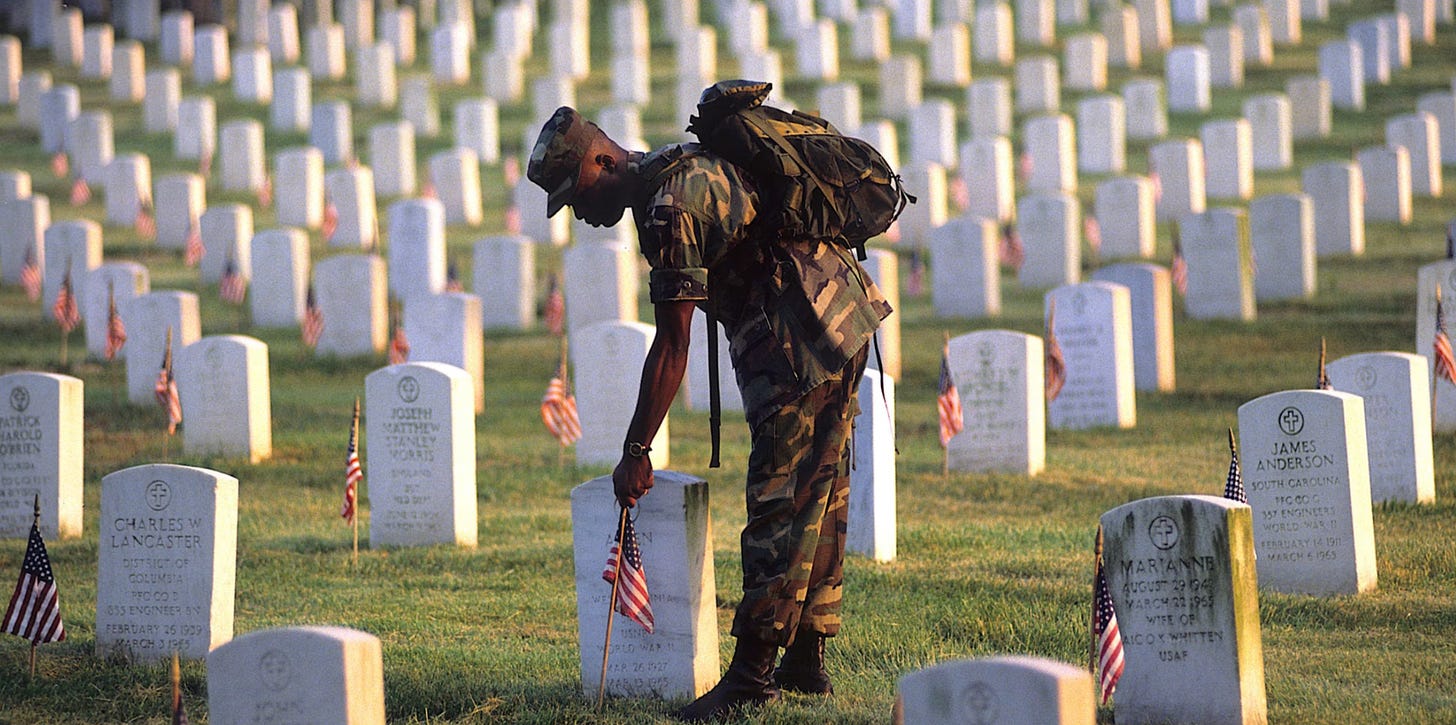The Memorial Day Story We Were Never Told: Honoring Black Americans at the Holiday's Heart
The Dignity, Grief, and Defiance at the Heart of the First Memorial Day

Every year, Americans mark Memorial Day with parades, barbecues, and tributes to fallen soldiers. But behind the flags and flowers lies a story many of us were never taught—a story that begins not with official declarations, but with newly freed Black Americans in Charleston, South Carolina, who gathered in 1865 to honor Union soldiers who died fighting for their freedom.
On May 1, 1865—less than a month after the Confederacy surrendered—a group of more than 10,000 people, most of them formerly enslaved, came together at a former racetrack that had been used as a Confederate prison camp. There, over 260 Union soldiers had been buried in a mass grave.
These Black Charlestonians, along with Black ministers, white missionaries, and Union troops, reinterred the soldiers with dignity. They built a proper burial site, erected an archway that read “Martyrs of the Race Course,” and held a procession to honor the dead. Children sang, ministers preached, and thousands paid tribute in what was one of the earliest Memorial Day ceremonies recorded in U.S. history.

This powerful act of remembrance wasn’t about pageantry. It was about reclaiming humanity—both for those who had died and for those who had survived the brutality of slavery. It was a declaration: We remember. We honor. We will not forget.
Yet, over time, this origin story faded from national memory. Memorial Day was later formalized and popularized through efforts largely led by white Union veterans. The holiday became entwined with narratives of national unity—stories that often skipped over the contributions of Black Americans whose grief, gratitude, and courage helped give the holiday its first heartbeat.
Why This History Still Matters
Because remembering who started Memorial Day—and why—invites us to reconsider the full scope of American sacrifice. It reminds us that Black Americans have not only fought and died in every American war but also led the way in honoring those sacrifices, even when their own freedom was still fragile.
That commitment to service and sacrifice began as early as the American Revolution. Roughly 5,000 Black men fought for the Continental Army and state militias—some as free men, others in exchange for the promise of freedom. They fought at battles like Bunker Hill and Yorktown, with heroes such as Peter Salem and James Armistead Lafayette making vital contributions to the fight for independence. At the same time, thousands of others sought freedom by joining the British, who offered emancipation to enslaved people who took up arms against the Patriots.
From the very beginning, Black Americans were part of this nation’s fight—not just for territory, but for liberty, dignity, and recognition.
Source: National Park Service. “African Americans in the Revolutionary War.”
https://www.nps.gov/articles/african-americans-and-the-american-revolution.htm
This Memorial Day, may we widen our lens. May we honor all who served and remember that the first to hold a Memorial Day ceremony did so not just out of patriotism—but out of profound respect for justice, dignity, and the cost of freedom.
Want to Continue the Conversation?
Don’t miss Beyond the Uniform, a free virtual event hosted by Njeri Njuhigu starting May 27, exploring what it means to serve—and be seen—beyond military titles.
👉 Click here to registerFor paid Substack subscribers: Join us this Saturday, May 31st for an exclusive Q&A with Dr. Mary Lamia, as we explore how emotion, memory, and belief shape civic life and political polarization. You’ll be able to ask her your questions live.
Let me know if you’ll be there.
And please share these stories if they resonate with you. It helps bring more attention this material.
Warmly,
Danita
Sources:
Gutterman, Annika. “The Overlooked Black History of Memorial Day.” TIME, May 25, 2020.
https://time.com/5836444/black-memorial-day/“How Formerly Enslaved People Memorialized the Civil War Dead.” History.com, May 21, 2020.
https://www.history.com/articles/memorial-day-civil-war-slavery-charleston“African Americans and the American Revolution.” National Park Service.
https://www.nps.gov/articles/african-americans-and-the-american-revolution.htm







